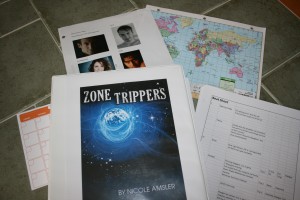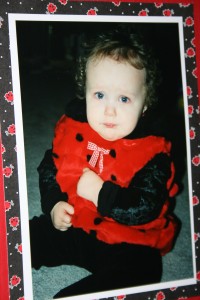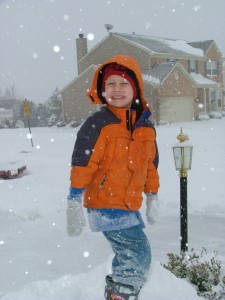a to z challenge
Gifts are my Love Language, which I hate to admit. It makes me sound materialistic and greedy. But for me, it is more about the thought and the effort than the price tag.
Little Girl Lost
One of the sweetest gifts I ever received was this doll (pictured.) I had one when I was a little girl and it was lost when we moved from my Dad’s house, after the divorce. It represented so much to me–a loss of innocence, the definition of beauty and worth and the loss of my family. My best friend, Robin, had one just like it.
Robin and I grew up together in our small town. We’ve been friends since kindergarten, we were college room mates and we are still best friends.
I lost the doll when I was eight. Years passed and I still thought about the doll, even looking on ebay.
When I was newly married and visiting my hometown, Robin saw my car in my Mom’s driveway. She flew in the drive and said, “I have something for you!”
She had found the doll in a box at a garage sale. She was naked and $1 was written on her leg with a Sharpie marker. But she was the same doll I had lost so many years ago.
Every time I see this doll I am reminded of how much my friend cared. I hadn’t mentioned the doll in over ten years but she saw it and thought of me.
Priceless Gifts
The price of the gift is never the issue.
- My Mom made my two sisters and me a scrapbook of our Christmas pictures. She wrote memories on every page.
- My college room mate, Anna, sends me a pumpkin related gift every October. We have been swamping pumpkin items for almost 20 years now.
- My husband has been known to drive 45 minutes to bring me orange Tic Tacs–just to say “I love you.”
- My Ohio friends add a household product to each of our birthday and Christmas gifts. One year it was Lem-Shine, another year it was a dusting product. These are items we would never splurge on for ourselves.
It is truly the thought that counts.
What gift have you received that spoke directly to your heart?
Tomorrow’s post is on Hedgehogs.
a to z challenge
A short list of things I am afraid of (in no particular order):
- Stair steps
- The dark
- Car accidents
- Scorpions
- Heights
- Under the bed
- Being abandoned
- Success
- Ridicule
- Half closed doors
- Conflict
- Ice and snow
- Guilt
- Pain
- Anesthesia
- Fame
- Fire
- Cancer
- Alzheimers
- Hell
- Forgetting
- Remembering
Reading this list, you’d think I lived in a fireproof Ranch with no doors and extra fire extinguishers and high powered lamps.
But other than few extreme phobias, I live a relatively sedate life–even without the help of pharmaceuticals.
Some fears are irrational and some can be traced back to a real events. I had a scorpion infestation in my house in Atlanta. Therefore, I don’t care to cohabitate again.
I have been in seven car accidents–many on ice and snow (but never while I was driving. I have always been the passenger.)
I have been known to drug myself with Tylenol PM on New Year’s Day so my husband can drive us home from Michigan without my corresponding anxiety attack.
I didn’t used to be afraid of heights until I had children. But I don’t know why.
The funny thing about fear is that it can’t be rationalized away. I know I shouldn’t be afraid of silly things like half closed doors or guilt trips. But as I walk near the railing, where I can see down over the edge, my knees get weak and I can’t step closer.
Fear results in worry. I used to live in a Ranch house (complete with scorpions) but since moving into a two story house (with stairs), I go to bed every night mentally rehearsing how to get my family out of the house if it caught fire. Today is the 6th anniversary since our move to Ohio, which means I have worried about this for nearly six years now–every night.
But at least there are no scorpions in Ohio.
What is the craziest thing you are afraid of?
Tomorrow’s post is on Gifts.
a to z challenge
 I have written every one of my first drafts as part of NaNoWriMo (National Novel Writing Month.) At the end of November, I have a perfectly formatted crappy first draft. I spend the rest of the year editing extensively. So it is with great authority that I share with you my editing process.
I have written every one of my first drafts as part of NaNoWriMo (National Novel Writing Month.) At the end of November, I have a perfectly formatted crappy first draft. I spend the rest of the year editing extensively. So it is with great authority that I share with you my editing process.
Editing Checklist
Beginning
Does the inciting incident happen right away?
Are their information dumps? Or are details feathered through as necessary?
Does the first chapter/scene include a mini conflict?
Is there any back story in the first 20-30 pages? If so, remove it.
Mechanics
Use a wavy line to mark awkward sections
Star sections I like (ego boost!)
At the end of the scene, write a single sentence that defines the scene (I add these sentences to an Excel file to use in the synopsis)
Grammar
Run spell check and grammar check (duh!)
Search for all –ly words—adverbs. Try to eliminate them.
Remove prepositional phrases.
Search and remove the words: very, nearly, extremely, that
Try to change your similes to metaphors (which are stronger)
Delete italics, all caps and exclamation points. No more than five are allowed in the whole book!
Characters
Does each character (even secondary characters) have a story arc? Do they want something? Do they strive for it? Do they get it or not?
Are all your characters important? And memorable?
Does your protagonist act? Things can’t just happen to him/her. They must act.
Do not state an emotion. Show it, do not tell.
Do both your heroes and villains have good traits and bad traits? Do you sympathize with them?
Do your main characters have both an interior conflict and an exterior conflict?
What motivates your bad guys? Are they multidimensional?
Is your protagonist changed at the end of the story? How so?
Setting
Is the setting well established? Could the story happen in a different time and place?
Is each scene told in the right place?
Address time of day, season, weather, place, country, etc.
Are all the senses addressed: smell, sight, touch, sound, taste?
Continuity
 Do a search for all your main character names. Make sure they are all spelled the same way (including nicknames)
Do a search for all your main character names. Make sure they are all spelled the same way (including nicknames)
Check your time line and make sure all your scenes fall in the correct time line
Double check your details against your master list (shown above.) This is a master file with character sheets, calendars, outline, subplots, discoveries, etc.
Pacing
On each page, check your tension. Does someone want something? Is there tension? If so, mark a T at the bottom of each page.
Make your fast paced scenes feature shorter sentences.
Does every scene advance the plot?
Is the ending in scene? It can’t be summarized.
Language
Remove all overused words.
On each page, is their one strong visual? If so, mark a V at the bottom of each page.
Highlight each cliché and rewrite.
Change every vague word to a concrete detail.
Voice
Can you tell which character is talking without attribution?
Use vocabulary, catch phrases, cultural aspects, educational level, worldview, frame of reference, dialect, attitude and tone to capture voice.
Let your characters make unique comparisons.
Read every piece of dialogue out loud. Better yet, have someone read your dialogue to you.
Does the dialogue earn its place? It should not reveal back story. Characters can not tell each other something they already know.
Avoid monologue—rarely more than three lines.
Avoid any attribute other than said or asked.
Finishing Touches
Double check your first and last sentences on each chapter? Do they have an amazing hook? Do they end well—leaving the reader wanting more?
Is the symbolism and motifs well developed?
Ending
Do no moralize or preach.
Avoid wrapping everything up into a neat bow. Failure had to be an option.
The closing image or scene should echo the first scene/image.
I revisit this checklist several times during the editing process. My current problem is learning how to STOP revising.
What are you editing tips?
Tomorrow’s post is about Fear.
a to z challenge
If belief is the opposite of doubt, then I find belief to be a lot like math. In theory, I understand some of the basic tenants. I have seen some experts put it into practice. And if I strive very hard, I can graze my fingers along its edge before it vanishes again.
I wish belief was easy for me but it is not.
I grew up in a Christian home, attended a Christian college, populated my social calendar with religious groups and events and regularly attended church for almost all of my 39 years.
Yet, doubt is my default.
I’ve never been comfortable declaring myself a Christian because 1.) some of the worst people I know are Christians and 2.) I was never very good at it. For me, it is the equivalent of claiming to be a mathematician.
At the moment, the best I can do is declare myself as having one foot in a bucket of agnosticism and one foot in an ocean of hopeful thinking.
The “Good” News
I have a hard time imagining a God who created a world full of diversity and then created a prescribed six step program that swings open the gates Heaven. But in His creativity, He forgot to give the instructions to the bulk of the world.
Rachel Held Evans’s book Evolving in Monkey Town says this, “If salvation is available only to Christians, then the gospel isn’t good news at all. For most of the human race, it is terrible news.”
For years, I refused to read even one book that might contradict what I was taught. My faith was already that shaky. I still have a hard time reading them, feeling I have to balance the scales by reading an equal number of Zondervan books.
Two of my favorite middle ground books include Rachel Held Evans’s Evolving in Monkey Town and Jason Boyett’s O Me of Little Faith. Both are decidedly smarter than me and they offer wise rationales on why they doubt. Their excuses are more articulate and well-rounded than my excuse of “I just don’t get it.”
Letting Go
Many of the things I was raised to believe, ring hollow for me now. I see contradictions everywhere. I can’t buy the Bible’s teachings lock, stock and barrel. I have a hard time believing Jesus has a political affiliation, let alone a country preference. And for years, I have faithfully carried out all the steps to grow your faith–attend church, read the Bible, practice quiet time, join a Bible study, serve in the community and so on.
But right now, I am tired. I have searched. I have performed my part–diligently seeking. But I still have not found.
Don’t Ask, Don’t Tell
It feels inappropriate to express doubt for a multitude of reasons.
- I might infect someone who is secure in their beliefs.
- I will worry my loved ones, who are now convinced I am headed to hell.
- It invites people to convert me or to help me see the light.
- It doesn’t solve anything.
There are a hundred reasons to NOT ask questions. There are a thousand reasons to nod along with masses, pretending that I am moved by the worship music and that the Bible verses light up on the page.
I find myself in a more pressing predicament with my two children (age 7 and 9). Both of them are prayer warriors, steadfast believers and generous souls. I don’t want to do anything to jeopardize their growing faith.
Since doubt is my default, I don’t want to pollute them with my unbelief. But when they ask hard faith questions, am I supposed to lie? Am I suppose to recite what I was taught? Or do I share honestly or with filters?
I urge you to comment politely. Are you full of belief–or doubt? Are you good at math?
Tomorrow’s post is about Editing.
a to z challenge
At age 37, I had silicone implants put in.
Not in my breasts but in my tear ducts.
 I have had an issue with crying my whole life. I had a violent military birth with a forceps delivery that left me with a black eye, lopsided nose and clogged tear ducts. There are no pretty baby pictures of me and when a prettier, blonde “Smith” baby was presented to my parents by the nursery staff, they were honest enough to request their actual, ugly baby.
I have had an issue with crying my whole life. I had a violent military birth with a forceps delivery that left me with a black eye, lopsided nose and clogged tear ducts. There are no pretty baby pictures of me and when a prettier, blonde “Smith” baby was presented to my parents by the nursery staff, they were honest enough to request their actual, ugly baby.
During the crucial teen years, I had an evil step father who made it his goal to make everyone in the household cry. Therefore I made it my goal to not cry. Ever.
As a married adult, I can count on both hands the numbers of times I have cried. It is cause for great concern if my husband sees me crying–and like all husbands, he’d really rather not see me indulging in a sob fest.
And for me, the concept of indulging is key. Anger and tears are two emotions I don’t feel I can indulge in. And I hold a false, inappropriate disdain for those who can cry and benefit from it.
Apparently my lifelong practice of not crying has dried up my tear ducts. I have wore contact lenses since middle school. I am nearly blind without them but about two years ago, my eyes were irritated from the second the contact lens hit my eyeball.
After having silicone plugs put in my tear ducts and conducting some testing, it turns out I have defective tears. The average blink should coat your eye with tears that will last 13-15 seconds, before you need to blink again. My tears lasted less than 2 seconds.
I don’t know that my lack of crying actually sent my tears packing, but the result is a lifetime of wearing glasses. There is no brand of contact lens that will replace what can longer be generated.
Cry Little Children
But not crying isn’t a skill I want my children to inherit.
My children will indulge in a good cry. And it makes me happy. Just today, as Grandma and four cousins left for Michigan, Spencer shed some tears. He has a particularly sensitive heart and prefers to cry with Momma or Daddy in attendance. Delaney has sobbed over friendship slights, the death of pets and because her best plans went awry.
I have never encouraged them not to cry. I hope it is an outlet they are able to use, as needed. And perhaps some day my tears will come back. Until then, I will rock the implants and train a dry eye on my children–learning from their example.
What personal flaws do you have that you don’t want to pass along to your children?
Tomorrow’s post is about Doubt.



